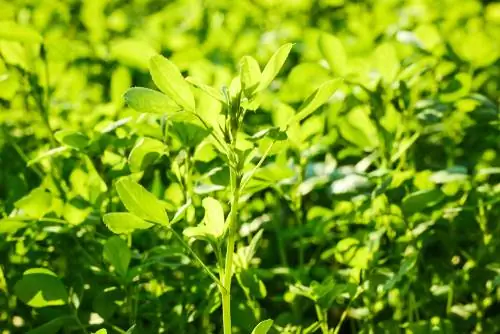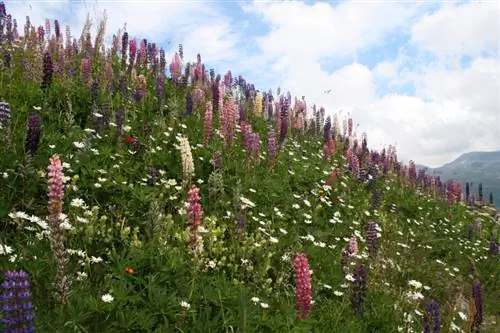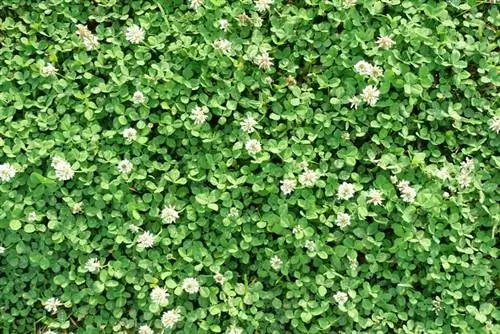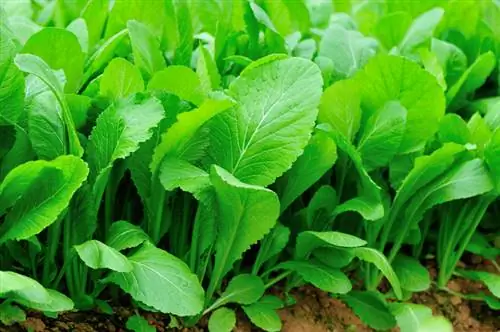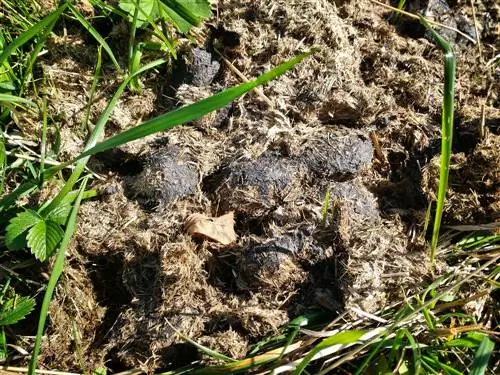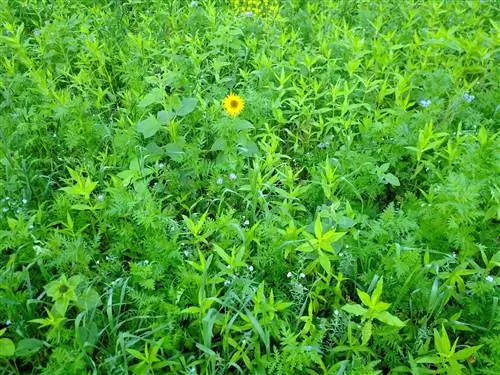- Author admin leonars@hobbygardeners.com.
- Public 2023-12-16 16:46.
- Last modified 2025-01-23 11:21.
Alfalfa is a perennial, hardy plant from the legume family. It collects nitrogen from the air and stores it in its roots. We can sow this “living nutrient depot” specifically as green fertilizer on fallow bed areas.
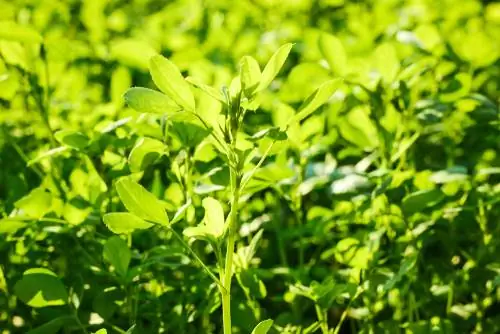
What does alfalfa green manure do in the soil?
Alfalfa green manure improves the soil structure and increases the nitrogen content through symbiosis with nodule bacteria. When sown on fallow areas, they store nitrogen and use deep taproots to effectively loosen even compacted soils.
The element nitrogen
In order for our lovingly cultivated plants to grow at all, they need, among other things, nitrogen in sufficient quantities. They can absorb it from the soil through their roots. As a result, the nitrogen content of the soil decreases over the years.
Butterflies, which include peas and beans as well as alfalfa, can absorb nitrogen directly from the air and store it in their roots thanks to a symbiosis with the so-called nodule bacteria.
How to fertilize the soil
First, the alfalfa is sown between spring and summer on the cleared bed area, where it can grow in peace for a while and store nitrogen.
- Alfalfa stays on the bed even in winter
- the ground is dug up in spring
- The alfalfa is incorporated into the soil
- When they decompose, the accumulated nitrogen is released
The nitrogen released in the soil is available to the newly grown crops and ensures he althy and strong growth.
Deep taproots as soil looseners
Sowing alfalfa as green manure has another advantage, because it gives our plants an improved soil structure. Lucerne has very long taproots that can grow through solid soil and loosen it up in depth.
Which soil benefits particularly?
Because of their loosening effect, alfalfa is ideal green manure for compacted and heavy soils, which are often found in many gardens.
Alfalfa can even be grown several years in a row on very depleted and dense soils. This will sustainably improve them in a natural way.
Uncomplicated cultivation
Alfalfa, also called everlasting clover or alfafa, is a green manure that can be easily implemented by anyone. The seeds are available cheaply in stores and the plant itself does not require much care later.
Tip
You can easily get new seeds from the sown alfalfa in the fall for subsequent years.

